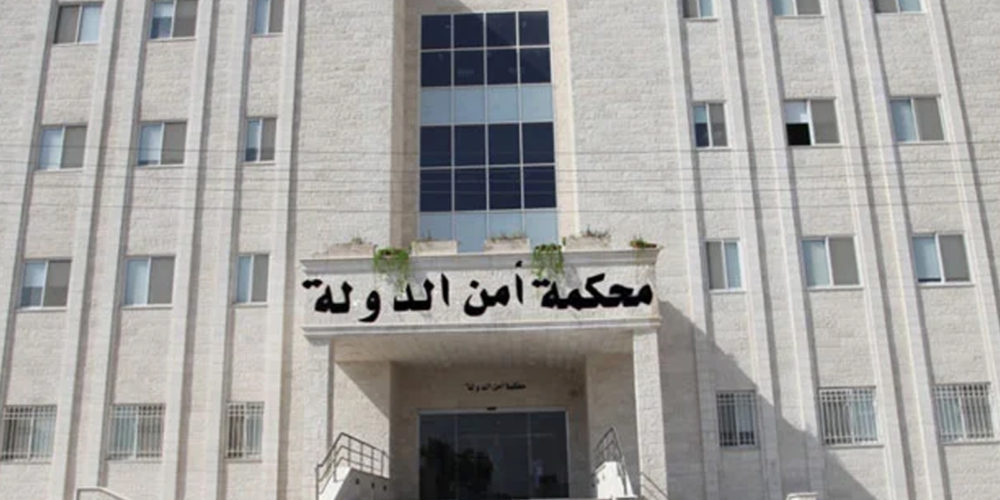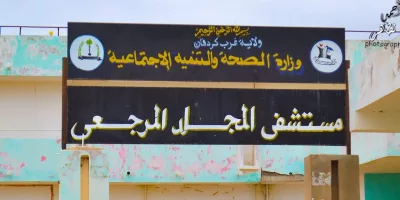The First Circuit of the Criminal Court, convened at the Badr Court Complex, led by Judge Mohamed El-Said El-Sherbiny, with judges Gharib Mohamed Metwally, Mahmoud Zidan, and Mohamed Nabil, with Mamdouh Abdel Rashid as the secretary, has sentenced 9 out of 43 defendants to death by hanging. The court accused the defendants of funding and leading a terrorist group in the case known as “Revolutionary Guards.”
The names of those sentenced to death are:
El-Sayed Abdel-Daim Ibrahim Ayyad (64) – Freelance Mechanical Engineer (in absentia).
Atef Amr Abdel-Ghani El-Hawary (47) – Diploma in Industrial Studies (in absentia).
Hossam Monofi Mahmoud Monofi Salam (30) – Civil Engineer Abroad (detained).
Anas Gamal Saad Khalifa (29) – Sales Representative (detained).
Mohamed Fawzi Ali Mostafa Hiba (30) – Freelance Civil Engineer (in absentia).
Ismail Mamdouh Ismail Taha Badawy (28) – Student (in absentia).
Abdullah Abdel-Wahed Abdullah Qabel (28) – Student (in absentia).
Amr El-Sayed Mahmoud Mohamed El-Hajj (27) – Student (detained).
Hozaifa Mokhtar Salem Mohamed (26) – Al-Azhar Secondary Education (detained).
The court also sentenced 3 defendants to life imprisonment, 28 others to 15 years of rigorous imprisonment, and 10 more to 3 years in prison. Additionally, the court ordered 17 of the sentenced defendants to be banned from residing in any of the country’s border governorates for five years after serving their sentences and placed them under probation for five years after serving their terms, excluding those sentenced to death.
The Committee for Justice has stated that the civilized world now views mass executions as indicative of unfair trials under entrenched dictatorships. The ongoing trials in Egypt resulting in mass executions have faced sharp criticism both internationally and from UN bodies. This perception suggests that Egypt’s judicial system is generally not independent of the executive authority, especially with the latter’s interference in appointing specific judges to handle opposition trials.
Various UN entities have criticized Egypt’s mass and politicized death sentences. In 2018, then-UN High Commissioner for Human Rights Michelle Bachelet warned Egyptian authorities against executing 72 defendants in the “Rabaa Sit-in Dispersal” case, calling it a “irreversible miscarriage of justice” that could not be remedied and urging the Egyptian Court of Cassation to overturn the mass death sentences issued after what she described as an “unfair trial”. She emphasized that the defendants were denied their right to individual legal representation and to present evidence, while “the prosecution did not provide sufficient evidence to prove individual guilt”.
This concern was echoed in a UN memorandum in September 2021, where experts noted that the trial failed to meet due process and fair trial standards, and the judgments lacked sufficient motivation. Experts also expressed concern about the increasing implementation of death sentences in Egypt, making it the third top executioner globally. They warned that if these practices continued, it would constitute a violation of the right to life, with executions following unfair trials amounting to arbitrary killings prohibited by international law. They noted that widespread and systematic arbitrary executions could be considered crimes against humanity, potentially involving global criminal liability for any officials involved.
Moreover, Egypt’s anti-terrorism laws have faced criticism from UN mechanisms for further eroding basic human rights, leading to more arbitrary arrests, torture allegations, and broader suppression of freedom of expression, thought, association, and peaceful assembly. UN calls have urged a review of these laws, emphasizing that their broad provisions seriously impact a range of fundamental human rights, as highlighted by Fionnuala Ní Aoláin, UN Special Rapporteur on the promotion and protection of human rights while countering terrorism.
The Committee for Justice emphasizes that despite all these criticisms, the Egyptian authorities have not been deterred. A total of 105 death sentences have been executed across 23 cases from 2015 to 2022, as follows:
7 in 2015
1 in 2016
15 in 2017
14 in 2018
18 in 2019
25 in 2020
18 in 2021
7 in 2022
8 in 2023, with around 100 defendants still awaiting execution after their death sentences were confirmed.
In light of the above, CFJ condemns the continued issuance of such mass death sentences, calling for their cancellation, a halt to their implementation, and a retrial of the defendants before a court meeting internationally recognized fair trial standards. The committee also urges Egyptian authorities to consider a formal suspension of pending and future death sentences to ensure proper review and compliance with international treaties and conventions signed by Egypt. It reiterates its call for UN mechanisms and the international community to pressure Egyptian authorities to halt these sentences and review terrorism laws to align with international standards.






